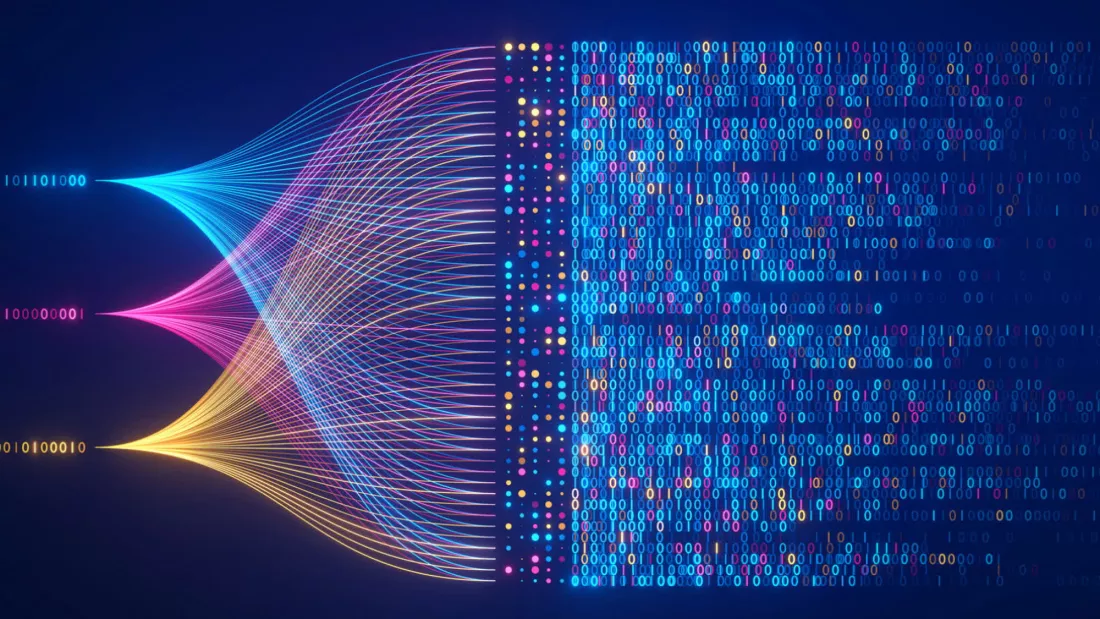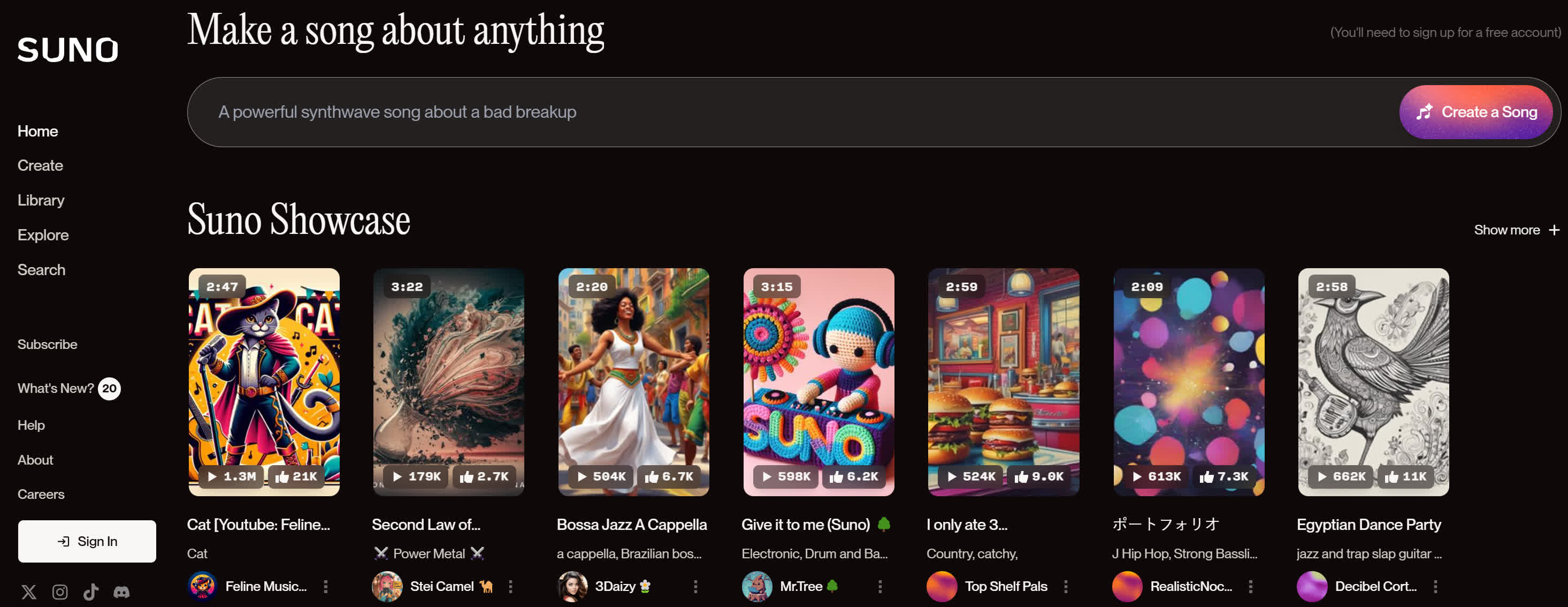Why it matters: The hot-button topic of AI companies scraping copyrighted content from the internet without compensation or credit is in the spotlight again. Music-generating AI startups Udio and Suno are battling copyright lawsuits filed by major record companies for this very reason. Their defense is admitting that they did engage in these practices, but claim doing so falls under fair use.

Suno and Udio were hit with separate copyright infringement lawsuits from music labels Universal Music Group, Warner Music Group, and Sony Music Group on June 24.
The start-ups, both of which have hired international law firm Latham & Watkins LLP, don't deny that their neural networks have been scraping copyrighted music from the internet. The companies' defense is that their actions are fair use under copyright law.
"It is no secret that the tens of millions of recordings that Suno's model was trained on presumably included recordings whose rights are owned by the Plaintiffs in this case." Suno acknowledged. Its excuse is that the training data includes "essentially all music files of reasonable quality that are accessible on the open internet," which will include millions of illegal copies of music tracks floating around the web.
"It is fair use under copyright law to make a copy of a protected work as part of a back-end technological process, invisible to the public, in the service of creating an ultimately non-infringing new product," Suno continued, suggesting that as the music it creates doesn't feature samples straight from the original songs, using the music for training purposes is legally allowed.
Both Suno and Udio emphasized that samples of copyrighted music aren't stored as a library of pre-existing content in the neural networks of their AI models, "outputting a collage of 'samples' stitched together from existing recordings" when prompted by users.
The companies also argue that they are creating new, original music, using their training data to define styles and genres, such as opera or jazz, which are not something that anyone owns.
"Our intellectual property laws have always been carefully calibrated to avoid allowing anyone to monopolize a form of artistic expression, whether a sonnet or a pop song. IP rights can attach to a particular recorded rendition of a song in one of those genres or styles. But not to the genre or style itself."
Suno says the lawsuit is merely a response from the labels wanting to shut it down as they don't want competition or threats to their market share.
The RIAA, which launched the lawsuit, had the expected response to the fair use argument. "Their industrial scale infringement does not qualify as 'fair use.' There's nothing fair about stealing an artist's life's work, extracting its core value, and repackaging it to compete directly with the originals," a spokesperson for the organization said. "Defendants had a ready lawful path to bring their products and tools to the market – obtain consent before using their work, as many of their competitors already have. That unfair competition is directly at issue in these cases."
Udio recently raised $10 million in seed funding from investors that include musicians will.I.am and Common. A month later, Suno raised $125 million.
In May, Sony sent a letter to more than 700 companies and organizations warning them that they are not authorized to use music data owned by the label to teach algorithms how to synthesize audio content. Elsewhere, Universal Music Group has asked streaming companies to block data scraping for AI training, while Warner Music Group Corp. CEO Robert Kyncl testified in a US Congress hearing about the need for strong legal protections to regulate the use of copyrighted content for AI training.
The AI companies' arguments are similar to those of Mustafa Suleyman, Microsoft's AI unit leader. In a July interview, Suleyman said that material published openly on the web essentially becomes "freeware" that anyone can copy and use as they please. That view appears to contradict the FAQ page from the US Copyright Office, which states that "your work is under copyright protection the moment it is created and fixed in a tangible form that it is perceptible either directly or with the aid of a machine or device."
Several AI companies have been accused of training their programs on copyrighted material. OpenAI is facing numerous lawsuits over these claims, while Perplexity was accused of ignoring the Robots Exclusion Protocol web standard to scrape areas of websites that operators do not want accessed by bots.

